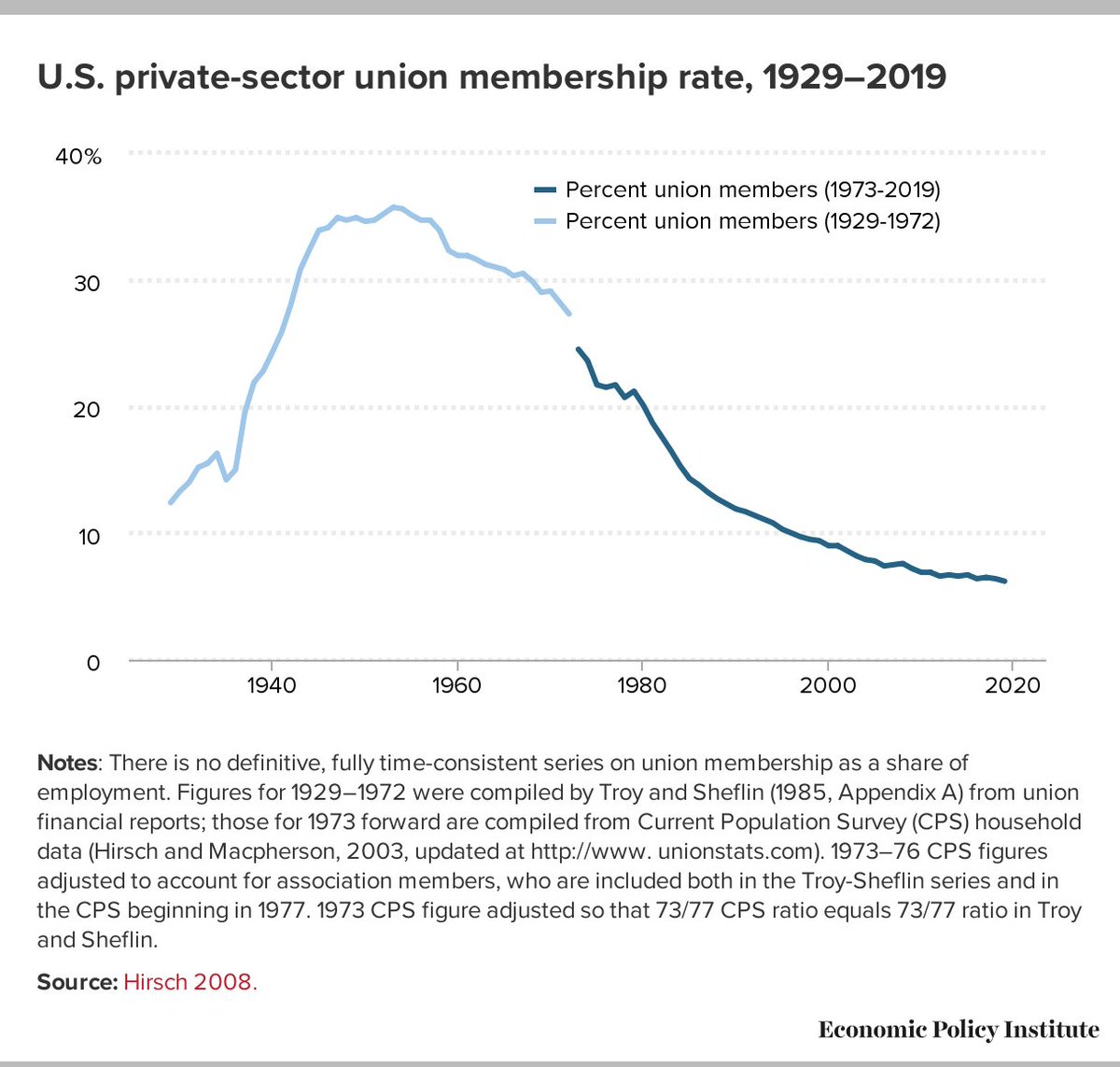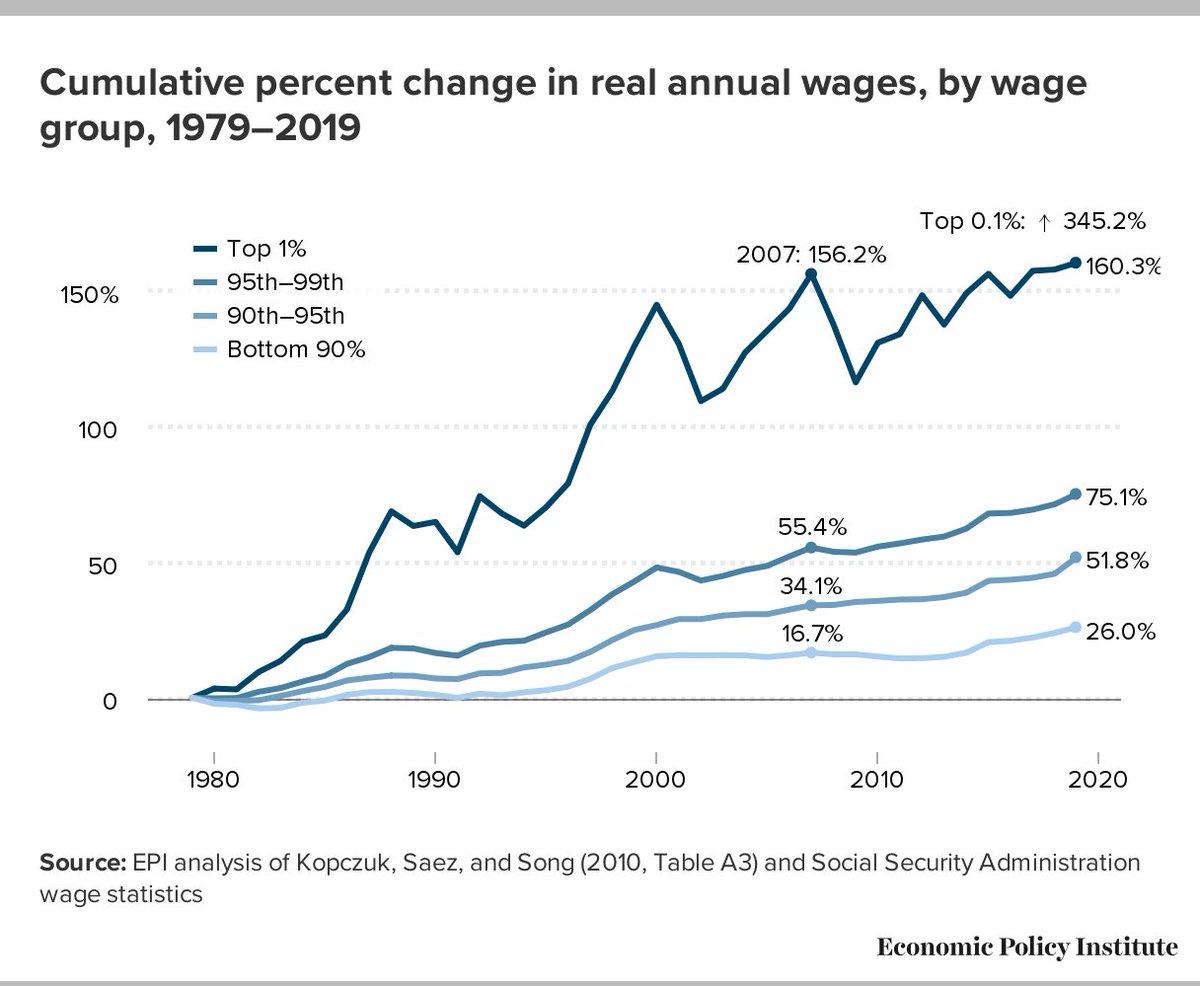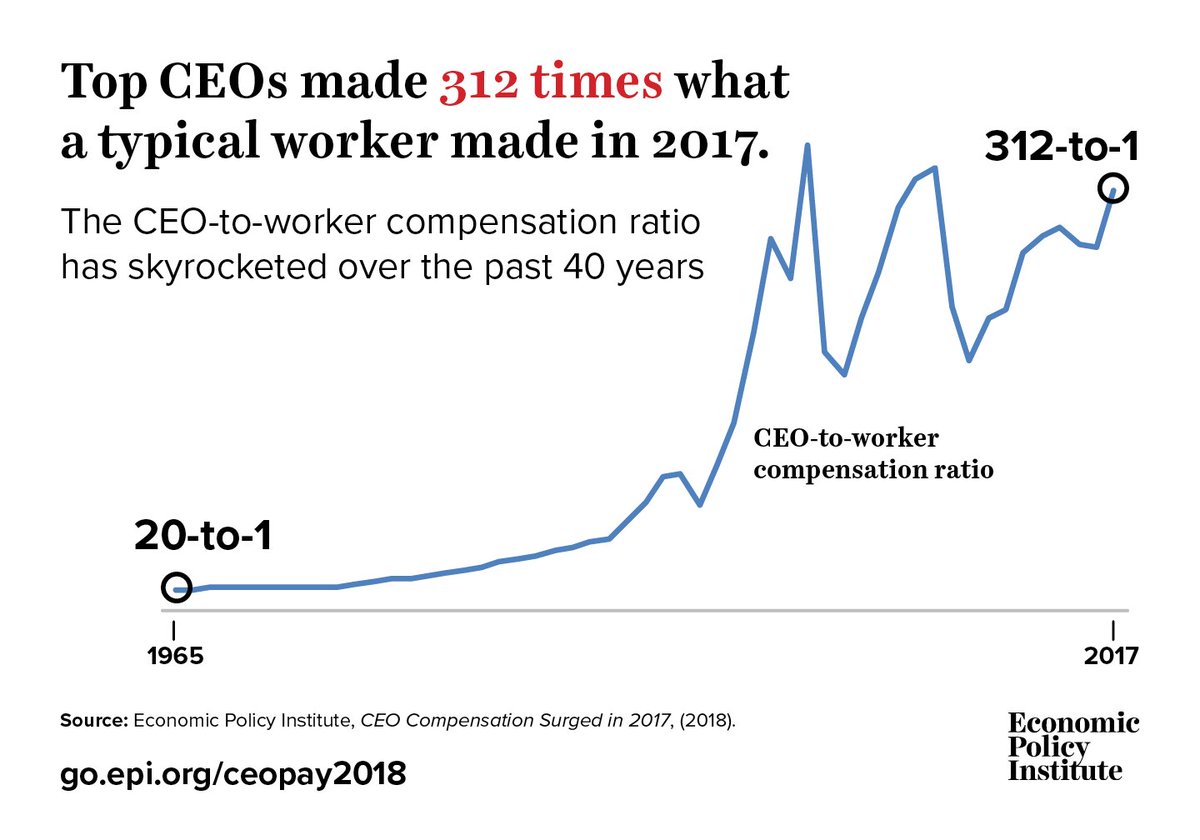
Distinguished Fellow & former pres, EPI. Dad(4), husband, grandpa(3), Bella (pure mutt). Economist. Progressive. Eagles/Phillies fan. Passionate and happy.
How to get URL link on X (Twitter) App


https://twitter.com/arindube/status/15625639864991744022) Centrist/liberal economists argue that government should only focus on those at the bottom, perhaps as much as bottom 30%. They have not focused much on helping the broad middle class and, in fact, have silently been hostile to their needs




https://twitter.com/econjared/status/13330769703017594882) In 2014: The Raising America’s Pay project exposes the root of rising income inequality, slow living-standards growth, and other key economic challenges: the near stagnation of hourly wage growth for the vast majority.

 2) CEO compensation up 1070% since 1978. Yes, read that again. Far greater growth than stock market (up about 637% (S&P) or the 308% growth of earnings of top 0.1% (top 1 thousandth). This is not result of a simple 'market for talent'
2) CEO compensation up 1070% since 1978. Yes, read that again. Far greater growth than stock market (up about 637% (S&P) or the 308% growth of earnings of top 0.1% (top 1 thousandth). This is not result of a simple 'market for talent' 